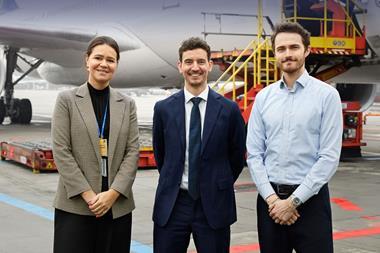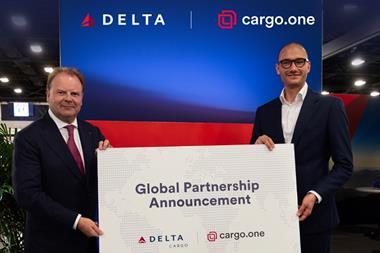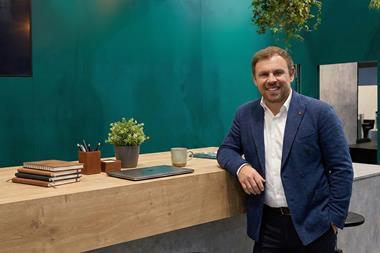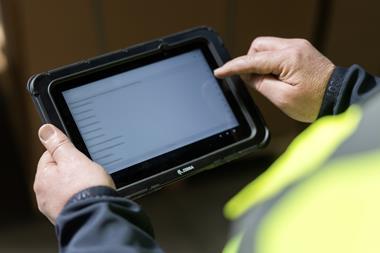Digital platform cargo.one is focusing on growth opportunities while retaining its core culture.
Merger and acquisition (M&A) opportunities within the technology space could form a part of cargo.one’s future growth.
The digital platform for booking and marketing airfreight capacity has already partnered with a number of companies, but is still a young company that values its organic growth, points out Moritz Claussen, founder and co-chief executive at cargo.one.
“We fully believe in a collaborative approach to the industry and we’ve partnered with many technology companies and other digital players in order to provide a better offering,” he says.
“We’re also constantly looking at the market and trying to understand where there are opportunities for us to grow by partnering or acquiring other players in the industry.”
Claussen stresses that any company acquired would need to fit in with the culture of the company. “Our culture is important to us and this is always a bit diluted or even hurt when acquisitions take place. It’s very difficult to integrate the cultures. So being in the right place at the right time is important.”
While culture is an important consideration for M&A, it is also key to the core functionality of the company.
There are currently more than 100 people, referred to as “cargonauts”, working for cargo.one in over 30 countries, but the company is 100% remote and this means retaining a culture is a challenge.
“Maintaining a remote culture across many different countries isn’t easy, because you don’t meet each other in person every day,” says Claussen.
“It means that we need to overcome, as a pretty small company, all of these cultural intricacies in one team.”
That said, being fully remote enables cargo.one to hire the best talent unhindered by the physical location of those people.
And having staff based all over the world enables staff to meet customers face to face in their home locations.
The cultural mix also “creates a lot of creativity”, notes Claussen.
The challenges around employees working from home during the pandemic were well documented but remote working, not unusual for a tech company but simultaneously a concept many companies working in air cargo can’t achieve, has long been embedded into the working practises of cargo.one.
Companies with remote working in place must immerse staff and keep them engaged as well as keep communications flowing.
Where hybrid and remote employees working for companies with physical offices could potentially face missing out on discussion and collaboration opportunities outside of meetings that other employees based at the office may have, remote workers are all in the same boat, so to speak.
“Because we don’t have that fallback of an office culture we can’t just have water cooler or coffee talk. We need to organise ourselves differently.
“The way we make this work is we have a pretty rigid company operating system in which there’s a lot of cadence when it comes to company-wide meetings, team-wide meetings, manager meetings, one-on-ones. We need to write down everything otherwise it gets lost.
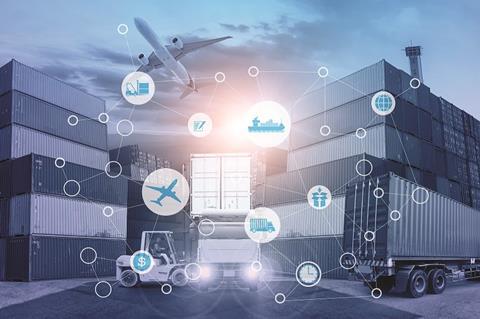
“We work on objectives and key results (OKR) cycles to do bottom up planning for each team. And then also top down planning. And that creates an operating system which allows us to exchange information to maintain our culture.”
Strength in start-ups
Having an unorthodox approach to workplace operations does make sense when you look at Claussen’s career history.
Over the last decade, he has worked in financial investment, which has given him a good grounding in how to run a business..
Speaking about his work with fellow cargo.one co-founders, co-chief executive Oliver Neumann and chief technology officer Mike Rötgers, he says the three have never had normal 9-5 jobs as such.
“The reality is we’ve never had a ‘proper job’. We’ve always been in the start-up world, building technology businesses from scratch – 0 to 1, and beyond.”
The trio became interested in the business scope for building a new business in the transport and logistics industry after previously co-founding and running fintech company, OptioPay Group (now Clink) in Berlin.
They learnt about air cargo specifically via meetings with Lufthansa Cargo through the airline’s Innovation Hub and internships with freight forwarders and airlines, where they studied the convoluted email processes in place to establish capacity and rates.
“Coming in as newbies, we thought why isn’t there something like a kayak.com, like we have on the passenger side, that we can introduce here to make this whole process a whole lot easier,” recounts Claussen.
Digital bookings in air cargo simply didn’t exist. But the concept of cargo.one was subsequently developed and the company launched in 2017.
There was naturally plenty of resistance to cargo.one’s proposed operating model to overcome along the way, because the new technology was daunting for the industry.
“The first conversations we had pitching to airlines about doing digital bookings saw the airlines telling us we would never be able to bring about live price information in combination with any type of availability information and we should forget our idea because it would never work.”
The reception from freight forwarders was similar: “The chief executive of a large freight forwarder told me back then that they would never make any of their booking information available to us.”
But by demonstrating they did have the knowledge and skills to make the cargo.one concept work, the entrepreneurs won the trust of this forwarder, and other stakeholders in the industry.
“Five years later, this freight forwarder is one of our biggest customers and today cargo.one helps them save huge costs and become greatly more efficient on a daily basis and reach more customers.”
Having startup experience certainly provided a good grounding for the tenacity required in the early years of cargo.one.
“Our previous jobs in the start-up world have really helped us to internalise problem solving, hire the right people, overcome obstacles and not submit to critical feedback or people saying ‘no, this can’t be done’. Anything can be done if you put your mind to it,” muses Claussen.
Business today
Today, cargo.one has connected over 60 airlines with 20,000 freight forwarders in 121 countries and there are hundreds of thousands of shipments booked monthly through the platform.
Several airlines have this year invested in cargo.one’s flagship product, its digital air cargo booking platform, to offer forwarders instant access to capacity.
Last month, Air Europa Cargo added its capacity while American Airlines Cargo also placed its domestic freight capacity alongside its existing international capacity.
While the company is busy adding further intelligence to its existing tech, such as real-time data and analytics, growth on the booking platform remains bread and butter business for cargo.one.
“We always continue to integrate new airlines,” Claussen stresses. “A marketplace like ours only works if you have all of the supply out there on the platform.”
Having accomplished the initial goal of connecting airlines to freight forwarders and enabling forwarders to see costs and airline capacity availability in real time and make bookings online, cargo.one now aims to provide forwarders with the means to quote customers accurately in real time.
Forwarders need technology that offers transparency for them to understand buy rates and turn buy rates into sell rates to give to customers on request, explains Claussen.
“The freight forwarder who delivers an accurate offer quickly is likely to win that business.”
Just this month, time-critical forwarder time:matters signed up for the cargo.one platform.
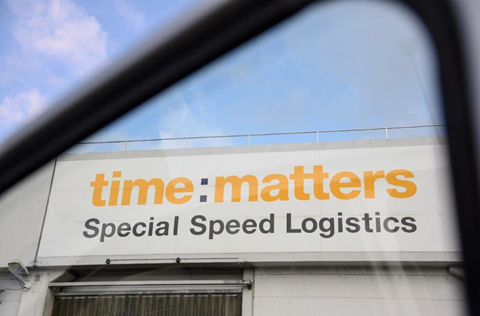
Now, cargo.one aims to expand its platform beyond airlines and freight forwarders to other supply chain stakeholders.
“I think we can connect a lot more players in this industry - truckers, ground handling agents - to freight forwarders to make the service more effective and future proof it for forwarders.
Platform growth
Organic growth is clearly important to cargo.one, but Claussen is keeping quiet about what is potentially in store for the company next.
He does, however, reflect on the fact that Asia is now a big market for airfreight digitalisation following its groundings in Europe, followed by take up in North America.
Major airlines in the region using cargo.one’s platform include Singapore Airlines Cargo, ANA, Maskargo and JAL Cargo.
“Asia requires an adjustment of the product because the market is quite different in how it operates.
“And so we’re doing a lot to facilitate the user experience in China, India, Singapore and other countries in which we’re growing rapidly.”
Future footsteps
Claussen is positive about future growth prospects for cargo.one as he believes there is massive scope for digital innovation.
“Our vision is to help truly connect air cargo and to make this industry future-proof. And this is a long-term mission – it is not something that can be done in a month, a year or even a couple of years.
“So, if we look at where we need to be in five years, there is a lot that still needs to be done. We are still building cargo.one as a company, and we are growing massively every day and year-on-year. There will certainly be a lot more challenges and obstacles yet to come.”
But he doesn’t think it’s wise to look too far ahead, rather step by step is a more sensible approach.
“Looking at how we can help improve the airfreight industry over the next five years, I always look to break this down into more iterative, monthly, weekly, daily steps.
“It’s a common mistake for start-ups to consider a five-year horizon, and misguide themselves with misestimates.
“It is of course very difficult to predict the future, especially if you are on an exponential trajectory. I’d rather look at what we can do today, and what we can do tomorrow to make impacts and achieve our goals.”
Six years on from the inception of cargo.one, there is no doubt plenty to keep Claussen motivated to continue evolving the company.
“My role is constantly changing as we are a rapidly growing company. As we scale in size and our value proposition broadens all the time, we face new and exciting challenges. That keeps life very interesting and I wouldn’t want to do anything else.”










